You might be spending extra on organic foods…But did you know you don’t have to?
Are you a health-conscious shopper trying to make the best food choices for your family? Well, Healthy Reads is about to debunk some myths about organic foods! In today’s world, the term “organic” has become synonymous with quality and health.
But what if we told you that not all organic foods are created equal? That’s right; some organic foods lurking in the grocery cart are needlessly adding to your shopping budget.
So we’re here to shed some light on which items you can skip the organic label that’s burning a hole through your wallet. Why do some types of produce have more pesticides than others?
The senior vice president of policy for the Environmental Working Group says that if you eat something like pineapple, they have a protection defense because of the outer layer of their skin. It’s different for berries, though.
If you want to avoid pesticide residue, certain conventionally grown fruits and veggies have little to none. Generally, you’ll be safe from pesticide residue by buying non-organic versions of the following 14 foods.
… Get ready to rethink your grocery list and discover the truth about organic foods!
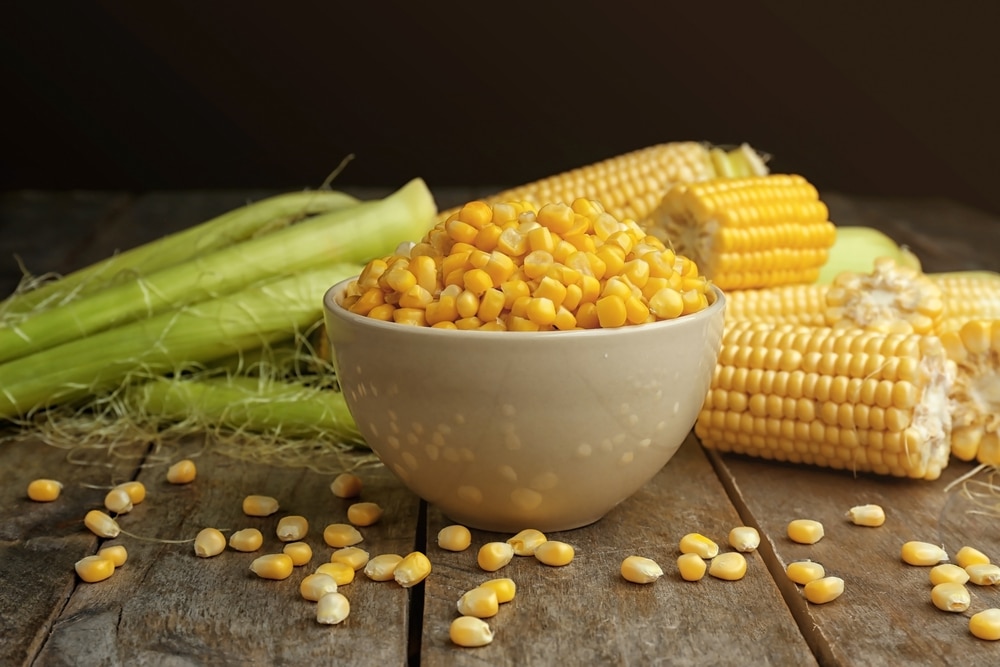
Organic food: Sweet Corn
Because of its low pesticide residue, sweet corn makes our list of foods you can buy non-organic. It’s one of the most fantastic sources of dietary fiber and has adequate levels of B vitamins and a few minerals, including copper, magnesium, iron, and zinc.
This vegetable is also an excellent source of ferulic acid, which may help prevent inflammation and cancer.
Organic food: Avocado
Avocados are among the safest non-organic fruits because their thick outer skin prevents pesticides from getting to the edible fruit. Also known as alligator pears, they’re full of essential nutrients, including potassium, folate, and vitamins K, B-6, E, and C.
With olive and canola oil, avocados are also a fantastic source of monounsaturated fatty acids, a healthy sort of fat that can help decrease the risk of heart disease and improve the function of your blood vessels.
Some studies show that monounsaturated fatty acids help with insulin levels and they control blood sugar levels, which is especially vital if you have type 2 diabetes.
The Academy of Nutrition and Dietetics recommends placing a slice of avocado on your sandwich to substitute mayo or butter.
Organic food: Grapefruit
Pesticides can’t get past the dense peel of grapefruit, a great source of folate, fiber, potassium, and vitamin C, which aids your immune system. It also possesses hesperetin, a flavonoid that can aid blood flow to your toes and fingers and also suppress carcinoid tumors.
The red and pink versions of grapefruit also have lycopene, which fights free radicals that can damage your cells.
Organic food: Cauliflower
With very low or no detectable pesticide residue, conventionally grown cauliflower is perfectly safe to buy non-organic. Low in fat and carbs, cauliflower is high in dietary fiber, potassium, folate, and vitamin C.
This family member of the broccoli also has glucosinolates, sulfur-containing compounds that help your body detoxify. To keep the nutrients in cauliflower intact, we recommend steaming rather than boiling it.
Organic food: Asparagus
According to research, asparagus is one of the vegetables that is LEAST likely to contain any pesticide residue.
This spring vegetable, a distant cousin of garlic and onion, is an excellent source of fiber and jam-packed with nutrients like vitamins A, C, E, and K and vital minerals like magnesium, calcium, and zinc.
It’s also a suitable source of folate, which a body needs to repair DNA and produce more healthy blood cells, and chromium, a trace mineral that helps insulin carry glucose from the bloodstream into your cells.
Organic food: Sweet Peas
Sweet peas have little to no pesticide residue and they’re safe to buy the non-organic variety. They contain more fiber than most veggies. For instance, just one cup contains 14 grams.
The Institute of Medicine suggests at least 25 grams of fiber each day for women and 38 grams for men. Peas also include a polyphenol called coumestrol, which can help avert stomach cancer.
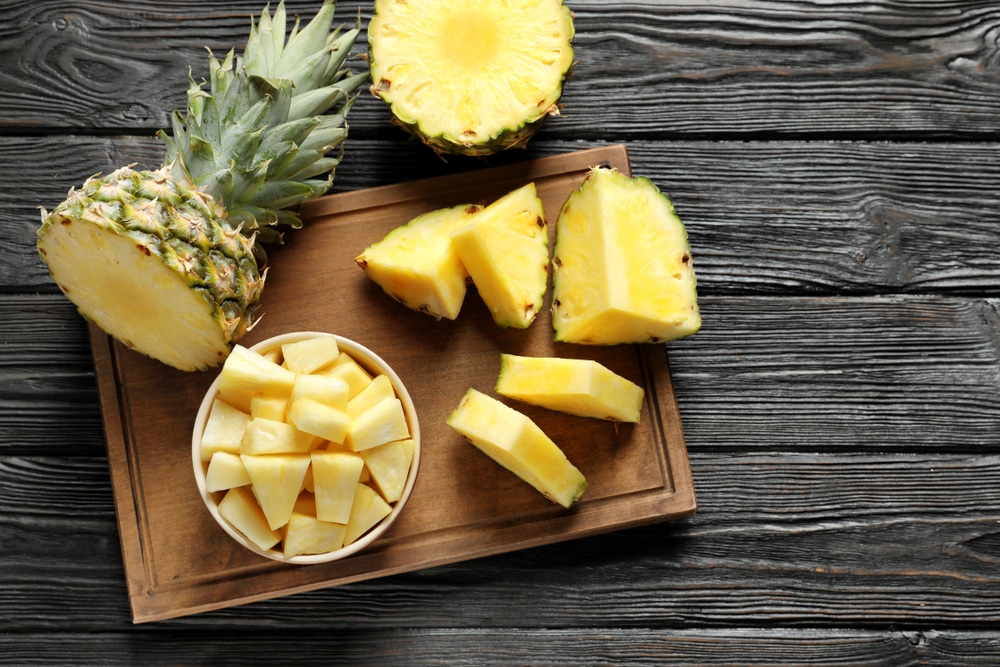
Organic food: Pineapple
The dense skin of pineapples defends the edible fruit inside from pesticides. So buying the non-organic variety is perfectly fine. Adults can get over 100% of their recommended vitamin C intake in just a single cup of fresh pineapple.
It’s also a significant source of manganese, vital to metabolism, human development, and the body’s antioxidant system. Pineapples also contain bromelain, an assortment of enzymes that digest protein and decrease inflammation, especially in the sinuses and nose.
Organic food: Cantaloupe
As a member of the squash family, cantaloupe is a significant source of B vitamins, fiber, folate, vitamins C and K, and beta-carotene, an antioxidant that aids in keeping eyes, skin, and hair healthy.
It’s also high in potassium, which can help to lower blood pressure. Due to its tough skin, pesticide residue can’t touch the edible fruit inside.
Organic food: Onion
According to experts, onions contain significantly lower pesticide residues than any other conventionally grown produce. They’re high in vitamin C and are a great source of dietary fiber and folate.
They also have quercetin, a flavonoid that helps stall or slow down the oxidative harm to cells and tissue. Quercetin can also help to get rid of free radicals in your body and regenerate vitamin E, a powerful antioxidant.
Organic food: Sweet Potato
Sweet potatoes have minimal pesticide residue compared to other conventionally grown produce. They are chock-full of vitamins A, B5, B6, niacin, thiamin, and riboflavin. Also, because of their orange color, they’re high in carotenoids, potent antioxidants.
Besides that, sweet potatoes are one of the easiest ways to get vitamin A. For instance, one baked, medium-sized sweet potato contains 438% of your daily vitamin A needs. A white potato only includes 1%.
Organic food: Cabbage
Non-organic cabbage is generally a safe bet to buy because it contains little to no pesticide residue. It’s a cruciferous vegetable, which a study found can protect against colon cancer in women.
Purple cabbage has anthocyanins, which researchers are investigating for possible anti-carcinogenic properties. Just a single serving of this delicious veggie contains over 20% of your recommended daily value of vitamins C and K.
Organic food: Mango
The thick peels of this delicious fruit prevent pesticides from touching the edible part inside. So it’s safe to buy the conventionally-grown version. A cousin of coconuts and olives, mangoes have the potential to lower the risk of macular degeneration and colon cancer.
They can also help in digestion and aid in keeping hair, bones, and skin healthy. One cup of diced mango contains 100% of your recommended daily intake of vitamin C for adults, as well as significant amounts of vitamin A and folate.
Organic food: Eggplant
Due to the fact that many of the pesticides used to grow commercial eggplant don’t remain on the skin, it’s typically a safe choice. It’s a good source of potassium, fiber, and magnesium.
Eggplant also has anthocyanins, a plant-based compound that can help decrease the risk of cardiovascular disease, cognitive decline, and even cancer. It’s also one of the most potent veggies when it comes to protecting the body against the destructive effects of free radicals.
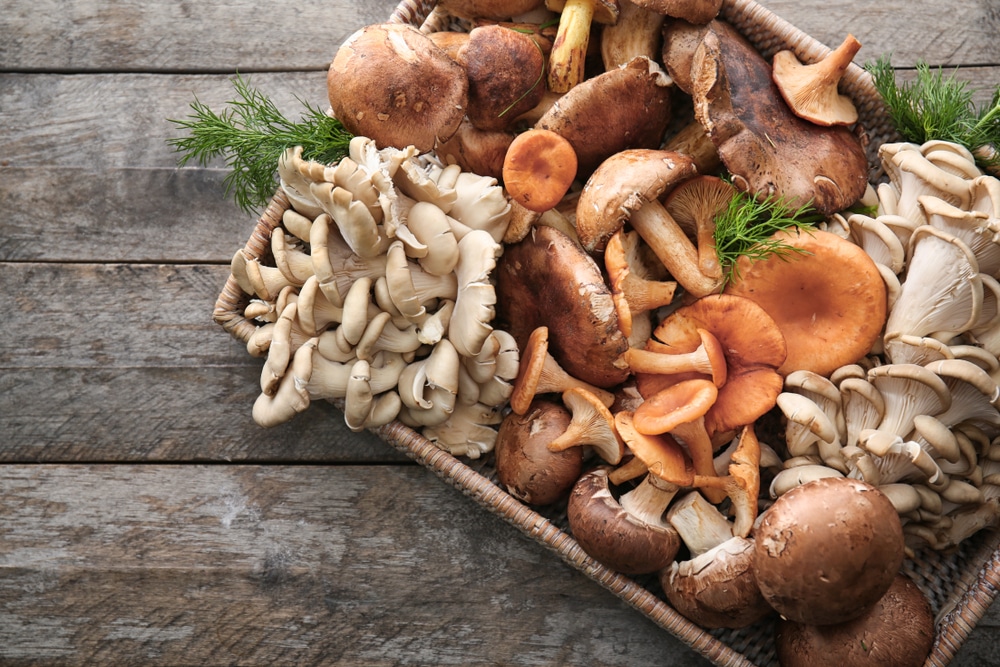
Organic food: Mushroom
Mushrooms have minimal pesticide residue. So purchasing the conventionally grown variety is generally acceptable. Full of fiber, mushrooms are also rich in B vitamins like folate, riboflavin, thiamine, pantothenic acid, and niacin.
They’re also an excellent source of critical minerals that are usually difficult to obtain in your diet, including iron, selenium, potassium, copper, and phosphorus.
Besides that, mushrooms are the only plant source of vitamin D, which is crucial for healthy bones and can aid in preventing osteoporosis. A recent study indicates that shitake mushrooms can even help prevent cervical cancer.
If you’re eating healthy but still not getting enough vitamins for your body, Amazon has a fantastic selection to choose from!
Did you know that you didn’t have to buy the organic versions of all these yummy foods? Please feel free to share your thoughts with us in the comments.
And if you found this article useful, Healthy Reads highly recommends you also check out: 12 Healthy High-Fat Foods You SHOULD Eat


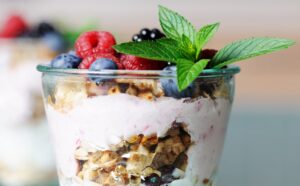
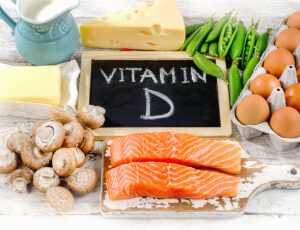



One reply on “14 Organic Foods You’ve Been Buying Needlessly”
I tried to find out what you are saying about 10 canned foods you should avoid at all costs. Well when I click on it I found out nothing!! Just a bunch of other things to read…….But NO 10 canned foods! So what seems to be the problem??
Dan